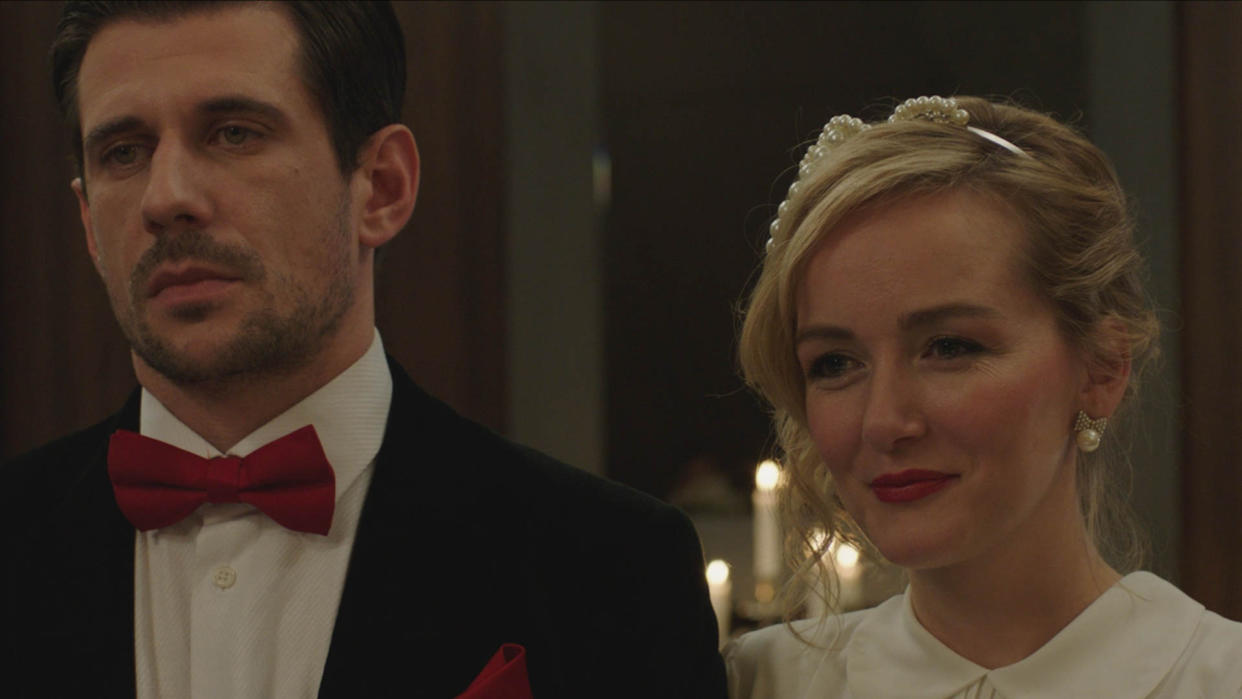Tallinn Film Review: ‘The Marriage’

The personal is subtly political in Blerta Zeqiri’s compelling and compassionate relationship drama “The Marriage.” Paralleling the unquiet recent history of the contested nation-state of Kosovo with the lives and interactions of three of its inhabitants, Zeqiri has crafted an exceptionally well-performed, absorbing and empathetic first feature. Transforming gradually from an authentic and insightful portrait of middle-class life in contemporary Pristina into a gay love story, the film is guaranteed wide exposure, especially in festivals with dedicated queer cinema sidebars, following its well-received premiere at Tallinn’s Black Nights. But, arguably, the movie transcends even that ever-broadening category — its inevitable description as an LGBT-themed work is almost a spoiler, as the picture is anything but a single-issue melodrama. Rather, it is a relevant, relatable and rewarding snapshot of how a society grows crookedly around its unresolved secrets, in the same way that a marriage can.
It was a decade after the Kosovo War of 1998-99, that the Republic of Kosovo declared its independence from Serbia. And though there’s nothing heavy-handed about Zeqiri’s fresh and engaging film, the first scene sets up that context: Bekim (Alban Ukaj) is accompanying his fiancee Anita (Adriana Matoshi) to a dreary, freezing-cold facility on the Serbian border where the latest round of unclaimed bodies from the war have been exhumed in the hopes they can be identified. Anita’s parents have been missing since the war, but she does not find them here, and there’s a sense, as they drive back home together, that her engagement to Bekim is the expression of a desire to move on with a life that has for too long been in a holding pattern of not knowing.
Their relationship, however, seems warm and genuine. In cleverly used flashback scenes (that often do such a good job of de-aging the actors that one wonders if this was some sort of “Boyhood”-esque experiment shot over many years) we track the natural, effervescent beginnings of their courtship. Like many modern thirtysomethings, they met in a bar (the one that Bekim runs, in fact), got drunk and giggly together, fell into bed and now some time later are planning to be married. But the return of Nol (Genc Salihu), an old friend of Bekim’s, from a successful musical career in Paris changes the dynamic in ways Anita does not understand. Though the three of them bond effortlessly over several drunken nights, the secret Bekim is hiding is that he, and not his sister Zana (Vjosa Abazi), is the great love for whom Nol is pining.
The film shifts focus gradually but irrevocably from Anita to Bekim, as he tries to reconcile his feelings for Nol with his idea of familial duty and the prevalent homophobia of Kosovar society. In so doing, he sells Anita short, of course, and if there is one critique of Zeqiri’s approach it’s that her otherwise taut screenplay (co-written with Keka Kreshnik Berisha) rather does the same. The small-scale tragedies of love suppressed and betrayed are everywhere, but it is the unaware Anita who most deserves our sympathy, heading into marriage to a man who is not committing to her as much as to a lifetime of duplicity. Yet having been roundedly personified as an eccentric, sometimes even raucous, character whose unjust destiny, it seems, is to be lied to by people who can pretend that they’re shielding her from harsh truths, she’s relegated to the background. A final, slightly redundant scene between Bekim and Nol would perhaps have been more satisfying if it had instead reconnected Nol and Anita, however ambivalently.
Still, that’s a minor point in an otherwise confident, clever chronicle of modern life in a cinematically underserved corner of the world. Sevdije Kastrati’s warm-toned, handheld camerawork puts us in close contact with this intimate story, and co-writer Berisha’s editing is fluid and efficient. But the make-or-break element of this kind of up-close-and-personal storytelling is the acting, and the performances of all three principals (who, as an ensemble, picked up a Special Jury Prize in Tallinn) are unimpeachably strong, elevating what could on paper be a classified as soap opera into an impactful and moving human drama. In three characters and their intricate interrelation, a whole nation’s complex and cauterized attitude to its history is laid bare even as a universal story of love, lies and self-deception emerges. Like all the best and most provocative allegories, it’s an imperfect one, but with deceptive dexterity and lightness of touch, “The Marriage” relates the pains of building a new life on top of the secrets of the old, to the conundrum of a society that has to move relentlessly forward without knowing where the bodies of the past are buried.
Subscribe to Variety Newsletters and Email Alerts!

